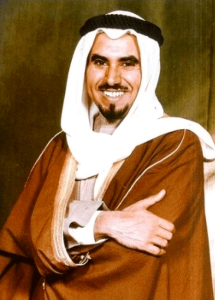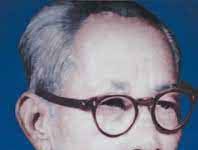Sheikh Jaber Al-Ahmed Al-Sabah
Sheikh Jaber Al-Ahmed Al-Sabah
Sheikh Jaber Al-Ahmed Al-Sabah was the Emir of Kuwait from 1977 to 2006. He was born on June 29, 1926, in Kuwait City and was the fifth son of Sheikh Ahmed Al-Jaber Al-Sabah, the founder of modern Kuwait.
Sheikh Jaber received his education in Kuwait and in 1949, he was appointed as the Governor of Hawalli, a province located in the southern part of Kuwait. He held this position for 25 years and played a significant role in the development of this region during that time.
In 1962, Sheikh Jaber was appointed as the Minister of Finance and Economics and held this position for 15 years. He played a crucial role in establishing Kuwait’s modern financial and economic systems, which helped the country to become one of the wealthiest nations in the world.
In 1977, Sheikh Jaber Al-Ahmed Al-Sabah succeeded his brother, Sheikh Saad Al-Abdullah Al-Sabah, as the Emir of Kuwait. During his reign, he implemented several reforms aimed at modernizing the country and improving the standard of living for its citizens. He was a strong advocate of democracy and worked towards creating a constitutional monarchy in Kuwait.
Sheikh Jaber also played a crucial role in the international community. He was a mediator in many conflicts and was widely respected for his leadership skills and his efforts to promote peace in the region. He also took the initiative to enhance Kuwait’s relations with other countries and played a key role in the formation of the Gulf Cooperation Council (GCC), which was established in 1981.
During the 1990 Gulf War, Sheikh Jaber was forced to flee Kuwait when Iraq invaded the country. He worked tirelessly to rally international support for Kuwait and was instrumental in the liberation of his country.
Sheikh Jaber passed away on January 15, 2006, and was succeeded by his brother, Sheikh Saad Al-Abdullah Al-Sabah. He was remembered for his contributions to the development of Kuwait and his efforts to promote peace in the region. 0 0 0.
Sources:
“Sheikh Jaber Al-Ahmed Al-Sabah.” Britannica, Encyclopædia Britannica, Inc., www.britannica.com/biography/Sheikh-Jaber-al-Ahmed-al-Sabah.
“Emir Sheikh Jaber Al-Ahmed Al-Sabah of Kuwait.” Emirates Palace, Emirates Palace,
“Sheikh Jaber Al-Ahmad Al-Sabah.” Gulf News, Gulf News. ***
N.B. The article originally belongs to the book ‘Brief Biographies of Eminent Monarchs‘ by Menonim Menonimus.
Books of Biography by M. Menonimus:
- The World Writers-Brief Biographies
- Introduction to World Writers
- Introduction to World Personalities
- Love of Reputed Persons
- Brief Biographies of Ancient Thinkers and Writers..
Additional Searches:











